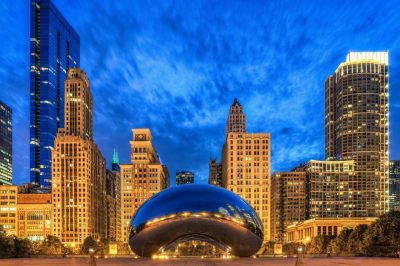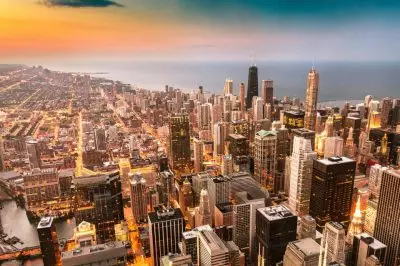 Yesterday, Illinois’ Governor J.B. Pritzker signed a bill that would hopefully pave way for long-awaited Chicago casino and could make the project for the gambling venue more attractive to potential developers.
Yesterday, Illinois’ Governor J.B. Pritzker signed a bill that would hopefully pave way for long-awaited Chicago casino and could make the project for the gambling venue more attractive to potential developers.
The General Assembly gave the green light to the proposed piece of legislation during its special legislative session last month, with the approval of the bill marking a major victory for Chicago Mayor Lori Lightfoot, who has been among the main supporters of the casino project. Ms. Lightfoot has been counting on the revenue that an eventual casino would bring the city coffers, as the expected tax revenue would help Chicago fund some community projects and pension plans for local firefighters and police officers.
As previously revealed by CasinoGamesPro, the tax revenue that is to be received by the state of Illinois from the casino is to be distributed to various projects that are part of Governor Pritzker’s “Rebuild Illinois” infrastructure plan estimated at $45 billion.
In 2019, Governor Pritzker signed into law a measure that has been pushed for more than twenty years by Chicago Mayors. Under it, a casino license was established, but a consultant’s report that state’s gambling legislation required described the tax rates included in the measure extremely heavy and predicted that investors would be scared off as they would be left with low single-digit profit margins.
Chicago Mayor Has Been Lobbying for the Casino in an Effort to Make the City More Attractive to Visitors
 Under the bill that was yesterday signed into law by Governor Pritzker, apart from the existing tax structure applicable to all Illinois casinos, the Chicago casino operator would be required to pay an additional 33.3% privilege tax.
Under the bill that was yesterday signed into law by Governor Pritzker, apart from the existing tax structure applicable to all Illinois casinos, the Chicago casino operator would be required to pay an additional 33.3% privilege tax.
According to estimates, the portion received by Chicago from slots is expected to vary from 10.5% on up to $25-million revenue to 34.7% on revenue exceeding $1 billion. Outside the city, local governments receive only a 5% tax from their casinos’ slot revenue, and in some cases, they even have to split that amount with other nearby localities.
Chicago’s Mayor Lori Lightfoot has backed the proposal for a large city casino throughout the fall of 2019 and the spring of 2020, as she was aimed at getting the Legislature support for a more favorable tax structure for the casino. Ms. Lightfoot has projected that the new casino venue will pave way for the future establishment of a new entertainment district in Chicago that is expected to make the city more attractive to tourists. Mayor’s administration has still not shared any ideas for a preferred location for the casino, with the discussions seem to be the sticking point in making further progress with the project.
In 2019, the consultant’s report challenged five locations on the South and West sites that had been suggested by city authorities. Lobbying for a location in close proximity to downtown Chicago could be more difficult for Mayor Lightfoot, who has been so far backing a campaign on bringing further economic development to neighborhoods that faced financial difficulties.
Before a casino can become operational in Chicago, an agreement must be reached by the city and a developer, and the latter has to be granted a gambling operator’s license by the state’s gambling regulator, the Illinois Gaming Board (IGB).